For contractors in British Columbia, staying informed on the construction laws is paramount to ensure smooth business operations. It also helps to avoid legal disputes and maintain credibility in the industry. Construction law in BC is complex, covering many aspects such as contracts, payment claims, liens, and dispute resolution.
Today, let’s delve into the crucial aspects of construction law in British Columbia that every contractor should be aware of.
1. Construction Contracts
Construction contracts are the backbone of any project and are essential in defining all parties’ legal rights and obligations. Contractors must ensure their contracts are clear, comprehensive, and in line with the applicable laws. Key elements to include in your construction contracts are:
- Scope of work
- Payment terms
- Change orders
- Insurance and indemnification
- Dispute resolution
- Warranties and guarantees
- Termination clauses
It’s essential to review and understand all the terms and conditions in a contract before signing and commencing work on a project. A legal expert reviewing your contracts can save you from potential disputes and issues.
2. Builders Lien Act
The Builders Lien Act is a critical piece of legislation in British Columbia that provides contractors, subcontractors, and suppliers with financial protection in case they are not paid for their work or materials. The Act allows you to file a lien against the property where you provided work or materials, effectively giving you a security interest in the property until you are paid.
To preserve your lien rights, you need to file a claim of lien in the Land Title Office within 45 days from the date the project is substantially completed, abandoned, or terminated. Understanding the timelines and procedures for filing a lien is crucial, as you need to do so to avoid losing your lien rights.
3. Prompt Payment Legislation
In 2019, British Columbia introduced prompt payment legislation by introducing Bill M 223—the Builders Lien (Prompt Payment) Amendment Act. While the bill has yet to be passed into law, it aims to establish mandatory payment timelines for construction projects, ensuring contractors and subcontractors are paid promptly.
If enacted, the legislation will require owners to pay contractors within 28 days of receiving an invoice and contractors to pay subcontractors within seven days of receiving payment from the owner.
Contractors should keep themselves updated on the progress of this legislation and be prepared to comply with its requirements when it becomes law.
4. Dispute Resolution
Construction disputes can be costly and time-consuming, making it essential for contractors to understand their options for dispute resolution.
In British Columbia, construction disputes can be resolved through negotiation, mediation, arbitration, or litigation. Each method has advantages and disadvantages, and the best approach will depend on the specific circumstances of your case.
- Negotiation: The parties involved in the dispute attempt to reach a mutually acceptable resolution.
- Mediation: A neutral third party (the mediator) helps the parties reach a voluntary settlement.
- Arbitration: A neutral third party (the arbitrator) hears the arguments from both sides and makes a binding decision.
- Litigation: The court system resolves the dispute, and a judge decides.
5. Occupational Health and Safety
Contractors in British Columbia must comply with the Occupational Health and Safety (OHS) regulations, which fall under WorkSafeBC.
Ensuring the safety of your workers and providing a hazard-free worksite protects you from potential lawsuits and penalties and promotes a positive work environment, and boosts your company’s reputation.
Conclusion
Understanding construction law in British Columbia is essential for contractors to protect their business interests and ensure successful project outcomes.
Contractors should familiarize themselves with the key aspects of construction contracts, employment law, insurance, and dispute resolution.
By doing so, they will be better equipped to navigate the complex legal landscape and mitigate risks associated with construction projects.
At Pathfinder Law, we offer a range of different legal services, including family law, employment law, business law services, and more. Our services are available to clients living and working throughout Abbotsford and the rest of British Columbia. If you’re looking for a construction lawyer in Abbotsford, we can help you. Contact us today.


